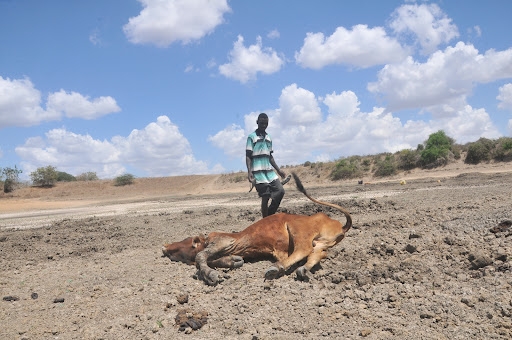Two goats chanced to meet, one on each side of a deep chasm through which poured a mighty mountain torrent. The trunk of a fallen tree formed the only means of crossing the chasm, and on this not even two squirrels could have passed each other in safety.
Their pride would not permit either to stand aside for the other. One set her foot on the log. The other did likewise. In the middle, they met horn to horn. Neither would give way and so they both fell, to be swept away by the roaring torrent below.
With this in mind, it’s very likely that we are headed to a runoff with no one garnering the 50%+1 vote that is required to win in the first round. Although we do not know how the recently announced running mates will shape the race, the likelihood of a second round of voting is very high.
A runoff usually favours the anti-establishment candidate, and many voters will realise that the perceived Goliath can actually be beaten, hence affecting round two results. As it stands now William Ruto is perceived as the opposition and anti-establishment candidate, despite being the current Deputy President.
There is an assumption that Raila Odinga is being supported by the establishment after getting the backing of President Uhuru Kenyatta. This gives him a disadvantage when it comes to a run-off, especially if he is number two in the main poll.
One of the factors that would force a run-off is the turnout in the populous Mt Kenya region where Ruto is currently seen as the most preferred candidate. Without a Mt Kenya presidential candidate, turnout will be less than 70 per cent and in a round two without other candidates, it could go lower than 50 per cent.
In the 2002 election, Uhuru Kenyatta’s candidacy with the backing of the late President Daniel arap Moi and the system seemed unbeatable. If the new constitution had been promulgated at the time and no candidate achieved 50+1, then it would’ve been impossible to beat Kibaki in round two.
The win by Uhuru in 2013 was just about 8,000 votes above the 50 per cent plus one vote mark. Without the 8,000 votes, the election would have moved to a runoff in which Raila and the rest could have joined forces.
If Ruto is leading even by one per cent going into round two, expect mass defections, betrayals, and backstabbing against the system candidate. Many would see Ruto as the perceived winner, making it possible for him to draw in support that he didn’t have in the first round.
Raila must win round one to win the presidency. Azimio must go into the election not thinking about round two as an option of winning the election.
Raila must not forget that as those supporting him were busy distracted with BBI, Ruto and his group were mobilising their supporters to register in large numbers. Ruto’s core bases registered more voters than those belonging to Raila.
These numbers will come to play in the election and could be a key deciding factor in a second round whose turnout would be expectedly lower than the main election.
If you want to see how Ruto can easily win, look at various by-elections that have happened in the last three years. In Msambweni, for instance, to everyone’s surprise, ODM lost a seat it has held since 2007. And it couldn’t contest the decision of the voters as the voting was very decisive.
Relying on the system is also another mistake that Raila and Azimio can make after seeing how new parties whitewashed Jubilee in its own backyard in various by-elections and specifically Kiambaa and Juja.
Ruto and his troops knew that the by-election was about the numbers that came out to vote. They also knew that they were going against the state machinery and thus protecting the vote was critical for them.
They are likely to employ the same tactics this time around and especially if the country is forced to go to a run-off.
“WATCH: The latest videos from the Star”












